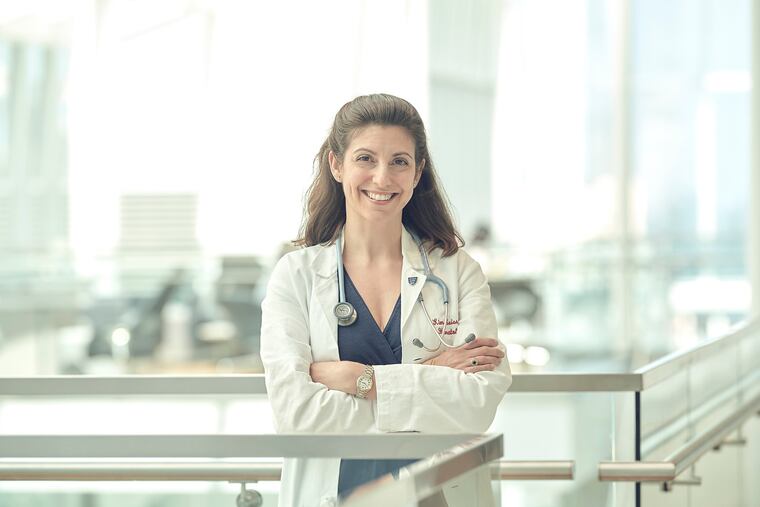When isolation is worse than death: a Philly oncologist on cancer patients and COVID-19 l Opinion
All my ways of supporting you during this pivotal moment – leaning in, offering a hand or a hug – have been stripped away in the name of safety.

Six feet feels like a chasm in the clinic room. I speak to you, a first-time patient, through my protective mask and face shield; my spine straight against the back of the chair so as to maintain our prescribed safe distance apart. We FaceTime with your husband, whose tiny visage on the screen is a poor substitute for his arm around you. You are both wearing homemade masks, but I can see that your eyes are full of unshed tears as the information pours over you.
You have a pancreatic mass and innumerable liver lesions. You need a biopsy, blood work, a port. There is no cure for what you have, but there is treatment. Step by cruel step, I puncture your universe full of jagged holes.
All my ways of supporting you during this pivotal moment – leaning in, offering a hand or a hug – have been stripped away in the name of safety. My expressions of empathy, warmth and solidarity are no longer essential tools, but rather deadly weapons. The relationship we will form is created in this first visit, and this moment feels hollow.
For established patients, the distance feels smaller. These relationships can better weather telehealth calls and physical distance. You know my sense of humor, my cadence – and I know your fears, your usual questions and the symptoms that plague you. You know that I would hug you if I could, as I have so many times before. Still, telling you over the phone that it’s time for hospice feels awful and fractured. I can’t see your face. The silence hangs, deadly, on the line. Even in hospice, you must keep your distance from others. How will you say goodbye?
If I admit you to the hospital, you are separated from your entire support system. Back in January, a daughter, a partner, a friend, a cousin — someone — would have sat by your side, handing out ice chips, asking the questions that have slipped your mind. Someone would have helped you interpret the deluge of information, assisted you to the bathroom at a moment’s notice, ordered your meals or brought your favorite soup. Cards would have decorated your hospital room — Get Well Soon, Grandma! — in preschool block letters. You would have been protected and watched over by those who love you.
Since March, our hospital rooms have become cold, linoleum prisons. Doors are shut, and only veiled beings — pairs of shielded eyes with muffled voices — are allowed inside, one at a time. If you die in the hospital, you will die alone. If you die now, there may be no funeral.
One of my patients, a lovely man with metastatic cancer, was admitted in early April for weight loss and liver failure. He had to walk into the hospital alone. “He looked so scared,” his daughter cried softly on the phone.
As the days passed, his condition did not improve. We were at an impasse: escalate his care and continue to hope he would recover; or get him home to his family. The chances of a major turnaround were slim, but not zero. If I sent him home, he would surely die there, but would spend his dying days with his family. If I kept him in the hospital, he might never see his family again. After multiple discussions – all by phone – he decided to go home and be with his children. For him, death was not nearly as frightening as isolation.
I never imagined that it would be like this: so disconnected from patients, making what feel like wartime decisions without a playbook.
But, there is also light: Some patients are getting to spend time at home with the college-aged children they otherwise hardly see; those with grandchildren are having daily FaceTime calls with kids who usually have no time because of school and activities. Spring is beautiful, and there is peace outside. As our patients have taught us, we must continue to hope for a brighter tomorrow.
Kim Reiss Binder is an oncologist in the Abramson Cancer Center of the University of Pennsylvania.